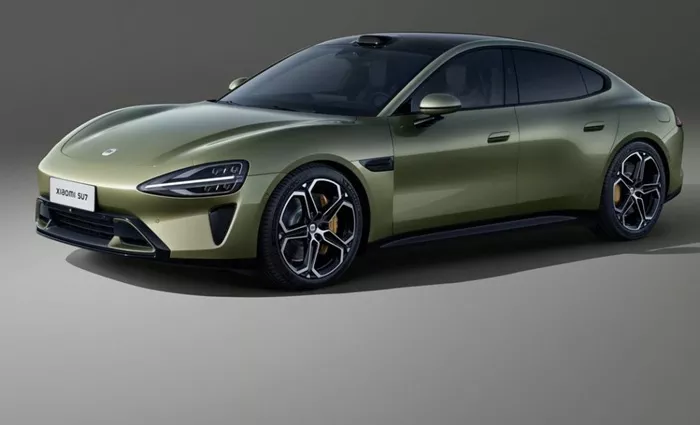In March, several Chinese electric vehicle (EV) makers, including Xiaomi, Xpeng, and Leapmotor, each delivered over 30,000 cars, marking a significant achievement compared to many of their startup competitors. This growth highlights how some automakers are pulling ahead in the electric vehicle race, although BYD continues to hold its position as the market leader.
Xiaomi set a new record with over 29,000 electric vehicles delivered in March, surpassing its previous record of 20,000 units each month for the past five months. The company shared this milestone on social media. However, the achievement was marred by a tragic incident involving its flagship model, the SU7. On Tuesday, the car was involved in a crash on a highway, resulting in three fatalities. Xiaomi later confirmed that the vehicle was operating on autopilot mode at the time of the crash. According to initial reports, the road had been obstructed due to construction, and the driver attempted to take control but collided with construction infrastructure. Xiaomi stated that an investigation is underway.
The incident came shortly after Xiaomi announced on March 18 its goal to deliver 350,000 vehicles this year. The company is also reportedly considering expanding its second EV factory in Beijing to meet growing demand, according to Bloomberg. Xiaomi has not responded to CNBC’s request for comment on the matter.
Xpeng, Xiaomi’s competitor, delivered 33,205 cars in March, marking the fifth consecutive month it has surpassed 30,000 units. This represents a 268% year-over-year increase in deliveries. Additionally, the company continued to see strong demand for its Mona M03 model, with more than 15,000 units delivered in March alone.
Leapmotor also showed impressive growth, delivering 37,095 vehicles in March, a 154% increase compared to the same month last year. Leapmotor, which is owned by Stellantis, recently expanded its reach to the U.K. with the launch of two EV models, the T03 and C10.
Li Auto, another key player in China’s EV market, delivered 36,674 vehicles in March, a 26.5% year-over-year increase. However, this was fewer deliveries than any month in the second half of 2024. Li Auto’s vehicles, which come with a fuel tank to extend driving range, have gained popularity among Chinese consumers.
BYD, the largest EV maker in China, sold 371,419 passenger vehicles in March, showing a 57.9% year-over-year increase. The company also set a new record for overseas sales, reaching 72,723 units in March. BYD unveiled its “Super e-Platform” technology, offering a range of 400 kilometers (around 249 miles) with just five minutes of charging. Additionally, the company is integrating DeepSeek artificial intelligence to enhance its advanced driver-assistance system, DiPilot.
Overall, the Chinese EV industry showed strong growth in March, as demand picked up after the seasonally slow start to the year.
In contrast, U.S. automaker Tesla saw a decline in deliveries, selling 78,828 vehicles in China in March. This marks an 11.5% year-over-year drop in growth.
Other Chinese automakers, including Nio, Zeekr, and Aito, experienced mixed results. Nio delivered 15,039 vehicles, a 26.7% year-over-year increase, but well below its performance in the latter half of 2024. Zeekr, owned by Geely, delivered 15,422 units in March, reflecting an 18.5% growth compared to the same month last year. Meanwhile, Aito, which uses Huawei technology in its vehicles, has not yet reported its delivery numbers for March.
First-Quarter Performance
Looking at the first quarter of 2025, BYD remains the market leader with 986,098 vehicles delivered. The company surpassed Tesla in battery-electric vehicle sales this quarter, after overtaking the automaker in total annual sales last year. Tesla, in comparison, sold 172,754 vehicles in China during the first quarter of 2025.
Xpeng posted impressive growth in the first quarter, delivering 94,008 vehicles, a 331% year-over-year increase. Leapmotor also saw strong growth, with 87,552 vehicles delivered in the first quarter, more than double the 33,410 units from the same period in 2024.
However, Li Auto and Nio lagged behind their competitors in terms of growth. Nio delivered 42,094 vehicles in the first quarter, a 40.1% year-over-year increase. Li Auto, meanwhile, delivered 92,864 vehicles, marking a slower growth rate of 15.5%.

